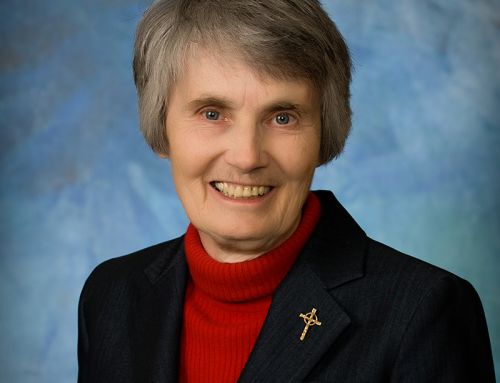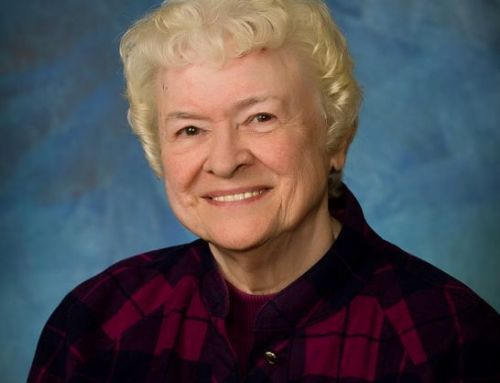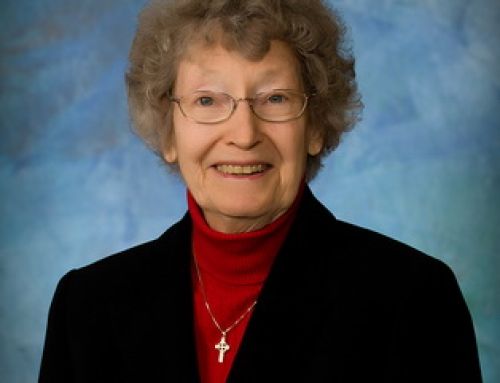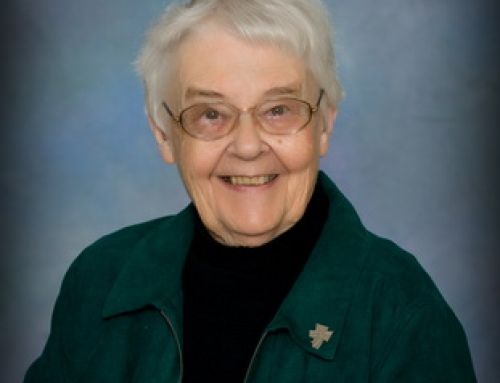Amid tragedies in Haiti, South Sudan and Afghanistan, sisters endure
As last week was coming to an end, I felt compelled to write about the sisters who in so many parts of our world continue to give their lives for others in conflict areas. We have heard about their selflessness in serving throughout the tragedies in Haiti, South Sudan and Afghanistan. It is heartbreaking for them and for the people they serve to endure the suffering of natural disasters and unthinkable human actions that inflict such pain and death. None of this stops the sisters. They do not run away.
Haiti continues to suffer from intense political turmoil and natural disasters that keep most of us wondering if they will ever end. There are many congregations of sisters there, both Indigenous and international, educating and offering health care in some of the most remote, mountainous areas of that country. The ones I am most familiar with are the Little Sisters of St. Therese of the Child Jesus, the first locally founded congregation; I have visited them a number of times, most recently in 2016.
At least 18 people were reported killed in Immaculate Conception Church in Les Anglais, Haiti, when the earthquake struck Aug. 14. The church, pictured here, was destroyed and others in the island nation were destroyed or severely damaged. (CNS photo/courtesy AVSI)
Now with the earthquake, these services are at a standstill as buildings have been destroyed and lives lost. I learned from the Little Sisters of St. Therese of the Child Jesus in Port-au-Prince that their sisters in some of the rural areas are sleeping outside because they do not know if their convent structures are stable. Food, water and medicines are scarce, but the sisters are still there caring for their neighbors.
Nongovernmental organizations are working together to send assistance. One of these is Medicines for Humanity, a U.S.-based NGO for which I serve as a board member. They wrote recently:
“Tomorrow, we will make our first transport and delivery of supplies to 3 clinics in Baradères; Aquin, and Cavaillon. We are joining a caravan with 2 other non-profit groups to make the trip through the dangerous gang area more secure. These initial supplies include soap, sanitizer, PPE, BP cuffs, IV solution, bandages, thermometers, a few solar lamps for the clinics and a few tents for the Sisters. The team is currently planning efforts for a second distribution of supplies towards the end of next week, if possible. Transport and logistics are still being worked on. This procurement will be more concise and include solar lights for the public, water filters and possibly, corrugated metal and wood for building shelter for the Sisters.”
We had hardly had time to process the news about Haiti when we were all shocked to learn of the murder of Sisters Mary Daniel Abut and Regina Roba, along with others who were gunned down in an ambush Aug. 16 in South Sudan. (Radio Tamazuj reported Aug. 19 that at least three other people were killed in the ambush and seven others were wounded.)
The group was on their way from a celebration at Loa Catholic parish, dedicated to Our Lady of the Assumption, where the Sisters of The Sacred Heart-Juba were founded in 1954 by the late Bishop Sixtus Mazzoldi, a Comboni missionary. Nothing of the sisters’ presence remains there because war over 30 years destroyed their previous convent.

The Sacred Heart sisters were founded specifically to serve the people of the region that eventually became South Sudan. The sisters have endured war throughout most of their existence. At one stage they escaped to Uganda but there encountered the Lord’s Resistance Army’s armed militants, from whom they and their students experienced more trauma. I remember visiting their convents in Uganda and also in an area near Torit and Juba (today in South Sudan) in 2006, where the sisters were all living in fear of militant groups.
The sisters showed me the site where they were hoping to build a school outside of Juba city. Education and health care of the poor is their apostolic focus. When I visited it was not technically being built — we gave them money to purchase bricks they could use to form a shape around their land. Without this semblance of building, the government would confiscate the land. This was normal procedure.
One of my memories of that visit is that instead of going by road to Juba from Torit, as planned, I had to charter a plane because the Lord’s Resistance Army was blocking the roads. It was an area near where Sisters Mary Daniel and Regina were killed. These internal conflicts never seem to end. Sister Regina worked with Solidarity with South Sudan in a school for nurses, and Sister Mary Daniel was head of a school, both very aware of the constant danger of the area.
The latest tragedy in the same week was in Afghanistan as the Taliban took over Kabul, the capital city, and the national president fled the country. Catholic News Agency and Catholic News Service have both provided some information about the sisters in Kabul.
When I visited Afghanistan in 2009, there was a total of 12 sisters in the country, all in Kabul. Four Little Sisters of Jesus worked in the city hospital and had survived under the first Taliban occupation. I was told that they were going to be forced to leave, but the people resisted because of the good care the sisters were providing.
Four Missionaries of Charity had a home for children with disabilities. There was also an inter-congregational community of sisters from India, Pakistan and Italy sponsored by the Italian Conference of Religious, both women and men. This group managed a day school for children with physical and mental disabilities. They hired and mentored Afghan teachers for the staff.
From the Catholic News Service report, we learned that the four Missionaries of Charity are still in Kabul, safe and waiting for opportunity to leave. One is from India; the others were not identified due to security issues.
A prayer card for Srs. Mary Daniel Abut and Regina Roba
(Courtesy of Friends in Solidarity)
Two other sisters from the inter-congregational community managing the day school are also still trapped in Kabul, but safe. (They were not among the sisters I met in 2009.) Sr. Shahnaz Bhatti from Pakistan and Sr. Teresia Crasta from India are quoted in a Catholic News Agency article that appeared in the Los Angeles archdiocesan publication Angelus, which cited a report from late July in the Italian magazine Mondo e Missione. The sisters said they were “very worried about the near future.”
Yet they managed to overcome their anxiety. “We live day by day, with serenity,” Srs. Bhatti and Crasta from India told the magazine:
“Our families are worried about us: every time they see the image of some attach on TV they fear for our safety,” they added. “But we sleep peacefully, here we have many friends and for the rest we entrust ourselves to God.”
They had been waiting for another sister to arrive in early August to help operate the school of 50 children that had just been reopened after many closures due to COVID-19, but she was delayed. I cannot imagine what their families must be going through as the chaos continues.

A woman in Los Angeles prays during a vigil for Afghanistan outside the West L.A. Federal Building Aug. 17. (CNS/Reuters/Ringo Chiu)
Having known several of these sisters and experienced a little of their lives, my mind and heart floods with memories of those precious moments and gratitude for their generosity. Their lives call out to all of us, even though we may be far from their regions of the world, to “make space for them” — the message of the recent LCWR assembly. These sisters in Haiti, South Sudan and Afghanistan represent sisters in many parts of the world that we often do not hear about. They are testaments of the heart and purpose of religious life — disciples of Jesus the Christ who give themselves totally for those forgotten by most of the world.
[Sister Joyce Meyer is a member of the Sisters of the Presentation of the Blessed Virgin Mary. She is on the boards of the Conrad N. Hilton Foundation, Medicines for Humanity and the International Foundation of the Good Shepherd Sisters and has served as international liaison to women religious for Global Sisters Report since January 2014.]








